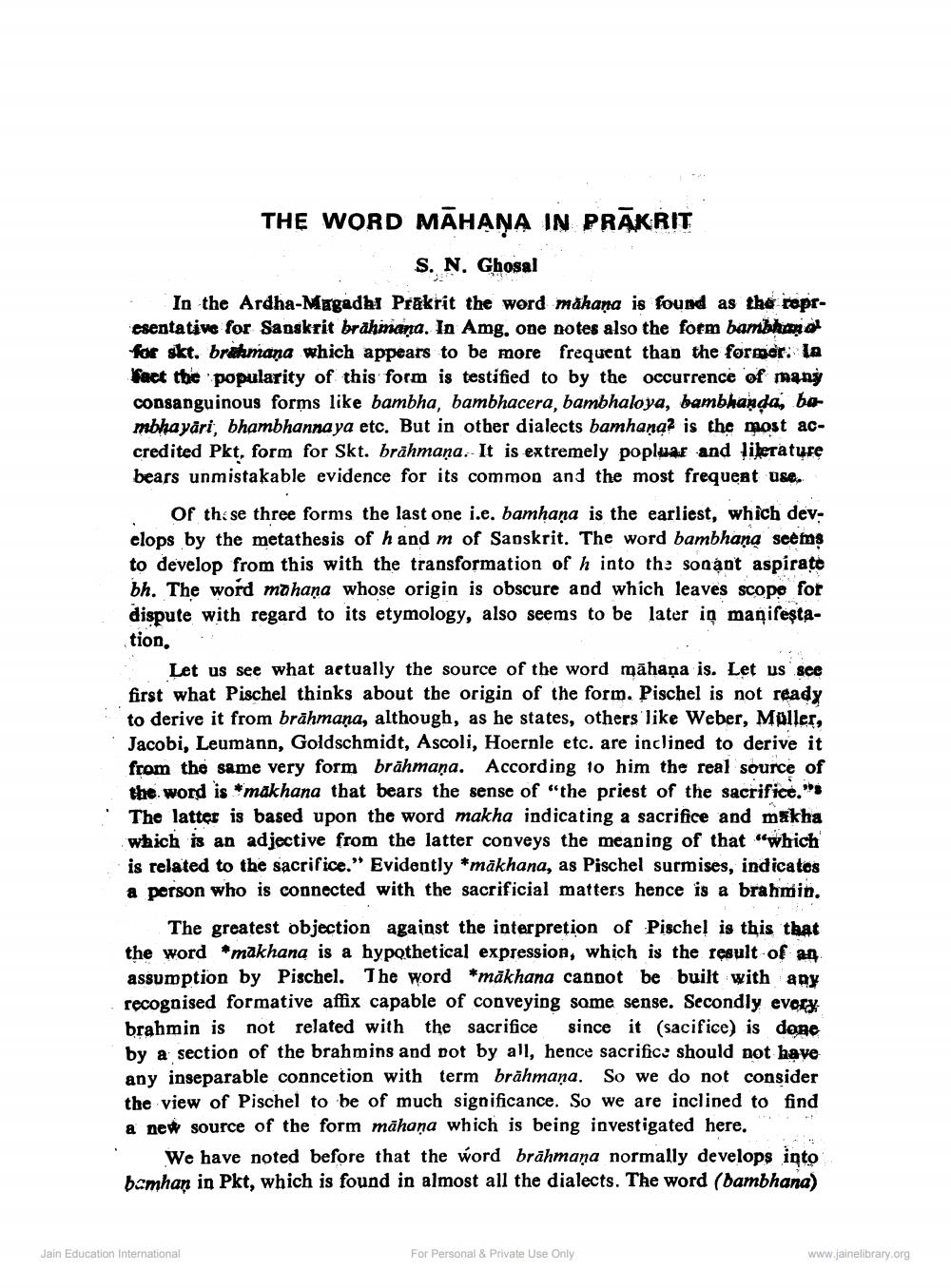________________
THE WORD MĀHAŅA IN PRĀKRIT
S. N. Ghosal . In the Ardha-Magadhi Prakrit the word mahana is found as the representative for Sanskrit brahmana. In Amg. one notes also the form bambhmal for skt, bratmana which appears to be more frequent than the forger. la Kaet the popularity of this form is testified to by the occurrence of many consanguinous forms like bambha, bambhacera, bambhaloya, bambhagda, ba mbhayāri, bhambhannaya etc. But in other dialects bamhana? is the most accredited Pkt, form for Skt. brāhmaṇa. - It is extremely popluar and literature bears unmistakable evidence for its common and the most frequent use.
of thise three forms the last one i.e. bamhaņa is the earliest, which develops by the metathesis of h and m of Saoskrit. The word bambhana seems to develop from this with the transformation of h into the sonant aspirato bh. The word mahana whose origin is obscure and which leaves scope for dispute with regard to its etymology, also seems to be later in manifestation.
Let us see what aetually the source of the word māhaņa is. Let us see first what Pischel thinks about the origin of the form. Pischel is not ready to derive it from brāhmaṇa, although, as he states, others like Weber, Müller, Jacobi, Leumann, Goldschmidt, Ascoli, Hoernle etc. are inclined to derive it from the same very form brāhmaṇa. According to him the real source of the word is *makhana that bears the sense of "the priest of the sacrifice." The latter is based upon the word makha indicating a sacrifice and makha which is an adjective from the latter conveys the meaning of that "which is related to the sacrifice." Evidently *mākhana, as Pischel surmises, indicatos a person who is connected with the sacrificial matters hence is a brahmin.
The greatest objection against the interpretion of Pischel is this that the word *makhana is a hypothetical expression, which is the result of an assumption by Pischel. The word *mākhana cannot be built with any recognised formative affix capable of conveying some sense. Secondly evory brahmin is not related with the sacrifice since it (sacifice) is done by a section of the brahmins and pot by all, hence sacrifice should not have any inseparable conncetion with term brāhmaṇa. So we do not consider the view of Pischel to be of much significance. So we are inclined to find a new source of the form māhaņa which is being investigated here."
We have noted before that the word brāhmaṇa normally develops into bamhan in Pkt, which is found in almost all the dialects. The word (bambhana)
Jain Education International
For Personal & Private Use Only
www.jainelibrary.org




